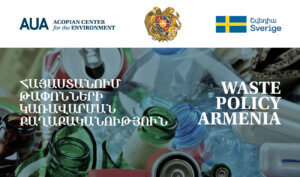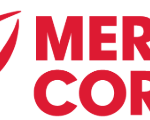
Prisma conducted the mid-term evaluation of the Waste Policy Armenia program, funded by the Swedish International Development Cooperation Agency (SIDA) and implemented by the American University of Armenia (AUA) Acopian Center for the Environment. This four-year program aims to enhance Armenia’s waste management sector by strengthening its capacity to implement environmentally sound waste management policies.
The purpose of the mid-term evaluation was to evaluate the progress made towards Program outcomes in the reporting period and to inform decisions on adjustments and improvements to Program implementation.
The evaluation framework combined OECD/DAC criteria with a market systems evaluation approach to provide a comprehensive and context-specific assessment. The evaluation criteria were Relevance and Appropriateness, Effectiveness and Impact (Scale and Resilience), Potential Sustainability, Cross-cutting Issues, Lessons Learned and Recommendations.
For this mid-term evaluation, a theory-based design was adopted, enabling a comprehensive assessment of both the program’s direct effects and its contribution to broader systemic changes and further impacts stemming from these systemic alterations. Contribution analysis was selected as the primary analytical method for this mid-term evaluation.
The mid-term evaluation was conducted by employing a mixed methods approach with the application of qualitative and quantitative methodologies. The primary data was collected using the methods of survey (nationwide survey/sample size 623, stakeholder survey/sample size 46), key informant interviews (12 KII with program experts, stakeholders, donor representatives), and focus group discussion (one FGD with the program team). Secondary data was collected through document review.
RAG (Red-Amber-Green) approach was used to visualize the evaluation findings and assess the status of program performance and progress.


